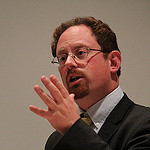Do we need more scientists in Parliament? They may not make any difference
There is one scientist in the current House of Commons, and only a handful more with any kind of scientific background. This fact is frequently used to illustrate Parliament’s apparent inability to bring about evidence-based policymaking. However, as Mark Goodwin argues, parliamentarians with scientific backgrounds don’t tend to vote any differently from their non-elected counterparts, suggesting that either efforts to improve the number of scientists in the House are either pointless, or that they make their expert contributions in other, less visible, ways.
Parliamentarians and civil servants in the UK have become increasingly interested in improving the mechanisms for transmitting scientific evidence to policy makers. High profile policy failures over BSE, foot and mouth disease and genetically modified foods have brought into question the scientific competence of government and its ability to handle evidence in a rational way. The relevance of scientific and technical knowledge to public policy problems is increasingly acknowledged in UK government, even in areas traditionally not considered to have a strong scientific component. The appointment of a chief scientific adviser and supporting staff to every government department regardless of portfolio is evidence of the belief that all the major challenges faced by government now have a scientific or technical component. Yet within Parliament, the level of specialist training or knowledge about science remains low.
The concern about the level of scientific expertise in Parliament is one aspect of a broader argument regarding the lack of specialist knowledge and experience of parliamentarians in the areas in which they are called to regulate. Former ‘Times’ science correspondent Mark Henderson has drawn attention to the lack of scientific expertise within the ranks of MPs, with only one former research scientist serving as an MP in the 2010 Parliament (Liberal Democrat Julian Huppert, although two other members in the 2010 Parliament hold science PhDs).
This is argued to reduce the capacity of Parliament to generate evidence-based policy, particularly, although not exclusively, when dealing with public policy problems involving cutting edge science and technology. Henderson argues that there is a risk where scientific literacy is low that policy makers might be more likely to be swayed by weak evidence, dogmatic party positions and media scaremongering and less likely to be able to weigh scientific evidence appropriately in justifying their policy choices. Henderson recommends that those who seek a more evidence-based politics should favour increasing scientists’ representation in Parliament.
A recent study of the voting behaviour of parliamentarians with a scientific background suggests that the impact of increasing numbers of scientists in Parliament may not be so straightforward. By comparing the voting behaviour of scientist and non-scientist MPs in 20 parliamentary divisions on the Human Fertilisation and Embryology Act 2008, the research aimed to identify any differences in the voting behaviour of the two groups.
MPs were considered to have a scientific background if they fulfilled one of two criteria. First, if they had been employed in a scientific, technical or medical occupation. Second, if they held a Bachelor’s degree or higher in a scientific, technical, engineering or mathematical (STEM) subject, including medicine. In total, 54 of the 649 MPs who had the opportunity to cast at least one vote on the Act were considered to have a scientific background according to these criteria.
The Act had major ramifications for the practice of both research and clinical science since it proposed to significantly extend the range of permitted techniques using human gametes and embryos that could be licensed within the UK, while implementing an outright ban or sharply curtailing other techniques. The study found no evidence that MPs with a professional or educational background in science voted differently to MPs without specialist scientific training, even on matters affecting scientific practice and even when free votes were in operation.
There was no evidence that MPs with a scientific background were more likely to resist restrictions on research or clinical practice than MPs without a scientific background. There was also no evidence that MPs with a scientific background were more likely to attend and vote in divisions, or that they were more likely to adopt a minority position within their own party when they did so. Once party allegiance was taken into account, the study found no relationship between MPs’ level of scientific training and their voting behaviour.
MPs without a scientific background. There was also no evidence that MPs with a scientific background were more likely to attend and vote in divisions, or that they were more likely to adopt a minority position within their own party when they did so. Once party allegiance was taken into account, the study found no relationship between MPs’ level of scientific training and their voting behaviour.
One possible interpretation of these findings would be to dismiss the idea that Parliament needs more scientists (or any other kind of specialist) serving as elected representatives. Since scientifically trained MPs vote the same way as all other MPs, their specialist knowledge and experience does not seem to make any difference to policy outcomes. However, such a conclusion would be premature. Focusing on votes in divisions in the Commons cannot provide the full picture about the health of parliamentary scrutiny and the effectiveness of MPs in dealing with scientific questions.
As Meg Russell has argued, the impact of Parliament on the policy process often occurs behind the scenes, and may be hidden by a focus on ‘roll call’ votes. While the study presents no evidence of an effect on voting behaviour, it would be premature to conclude that scientific training does not have any effect on MPs behaviour in scrutinising science legislation. The influence of MPs’ scientific expertise may be felt in other ways. One possibility is that the influence of scientific MPs is felt at the agenda-setting stage prior to voting on the Bill.
In the case of the 2008 Human Fertilisation and Embryology Act, scientifically trained MPs had already subjected the proposed legislation to unusually extended scrutiny before it was brought to a vote. In a situation where MPs were given free votes, it is possible that authoritative committee recommendations (in this case, strongly influenced by scientifically trained MPs) may have provided a lead which non-scientists were prepared to follow.
This suggests that scientifically-trained MPs may be able in some circumstances to play an important role both in the agenda-setting phase and in the decision-making phase by influencing the votes of others. One possible implication of this is that the cause of evidence based policy and effective scrutiny of government science policy might be better served by directing reform efforts at the agenda-setting stage including the committee structure and pre-legislation, than by focusing exclusively on voting behaviour or the personnel of the House.
—
Note: this post represents the views of the author and not those of Democratic Audit or the LSE. Please read our comments policy before posting. Image credit: Policy Exchange (CC BY 2.0). The shortened URL for this post is: https://buff.ly/1dsVAos
—
 Dr Mark Goodwin is Mellon Fellow in Public Policy in the Department of Politics and International Studies, University of Cambridge.
Dr Mark Goodwin is Mellon Fellow in Public Policy in the Department of Politics and International Studies, University of Cambridge.






 Democratic Audit's core funding is provided by the Joseph Rowntree Charitable Trust. Additional funding is provided by the London School of Economics.
Democratic Audit's core funding is provided by the Joseph Rowntree Charitable Trust. Additional funding is provided by the London School of Economics.
RT @democraticaudit report on effect of scientific background on MP voting https://t.co/PVeEPp58sV but did they choose the wrong example act?
Do we need more scientists in the House of Commons? They may not make a difference https://t.co/Asj3qa1Pf7
Would having more scientists in Parliament make any difference? Asks @DemocraticAudit https://t.co/XvguZECHqM
MT “@MarkRGoodwin in @democraticaudit why more scientists in Parli might not=more evidence based policy https://t.co/xWTT8vToRb” @luke_act
My article in @democraticaudit on why more scientists in Parliament might not = more evidence based policy https://t.co/Xsm5oEtBTG
More scientists in Parliament unlikely to make much difference, says @MarkRGoodwin: https://t.co/CD6HlqvQp8 #scipolicy HT @oliver_kathryn
Nope MT @democraticaudit: Would getting more scientists elected to Parliament bring more evidence based policy? https://t.co/AE9avyNGQU
Would getting more scientists elected to Parliament bring about more evidence based policy making? https://t.co/ibvUzaYs2R
Do we need more scientists in Parliament? On current form, they are unlikely to make any difference https://t.co/dsFta0bUZs
Interesting but I’m not sure the Act is the best example. Right now we’re in a huge row about whether politicians even understand scientific methodology when presented to them when making decisions (not only legislative) which need to reflect the best current state of scientific knowledge. Scientists are broadly excluded from public debate at all (e.g. their representation on Question Time) and I suspect (but cannot prove) that their omission makes a continuing, detrimental impact on our public life and civil society.
Do we need more scientists in Parliament? It might not make a difference https://t.co/jWH5YQhyx9
Do we need more scientists in Parliament? They may not make any difference https://t.co/rXCsmkXWk2